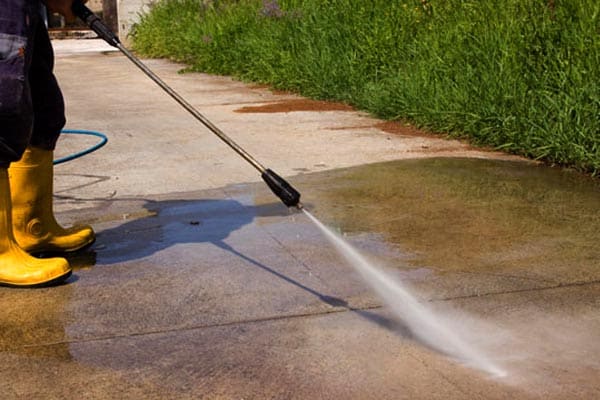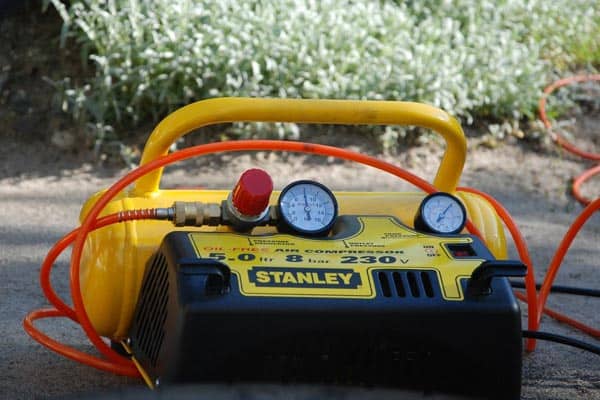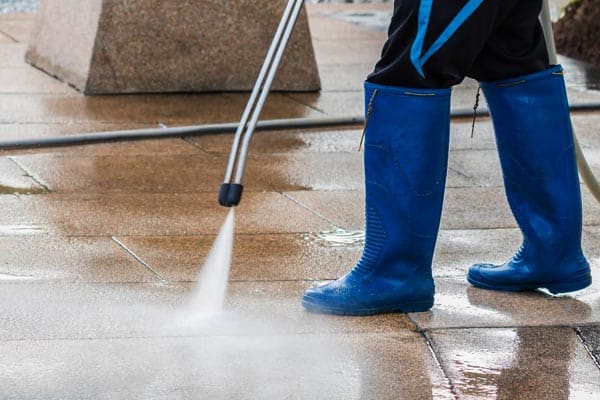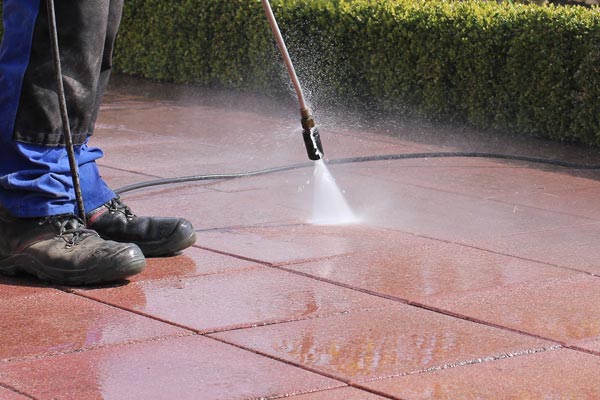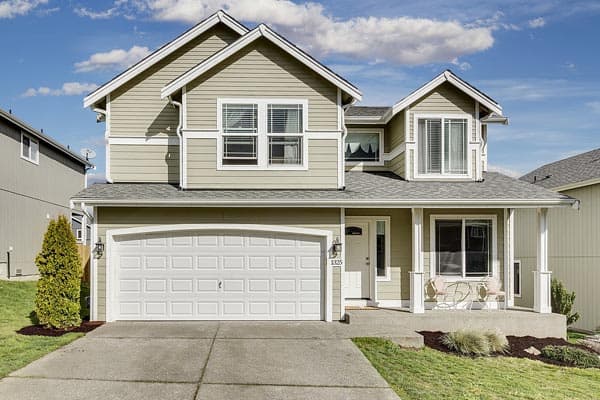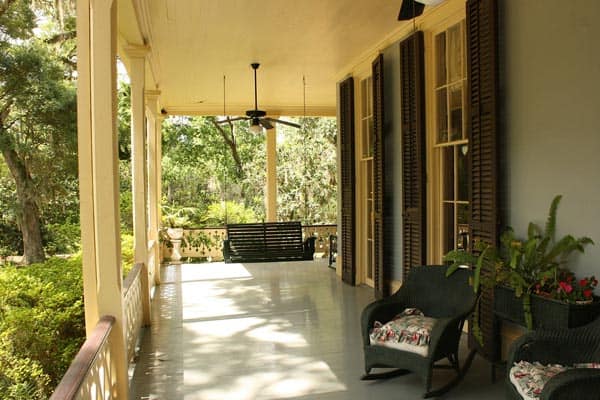Can You Safely Use Pressure Washers in Wet Conditions?
Most people use pressure washers for cleaning things outside, and they produce a pressurized water jet that makes it easy to wash away debris or dirt.
But, since the water it produces comes out of a nozzle attached directly to the machine, it isn’t unusual for it to deflect and splashback on the machine as you use it. This leads to people wondering if a pressure washer can get wet without any negative consequences.
The good news is that most pressure washers come designed to handle a smaller accidental splash of water at one time or another.
However, you shouldn’t have your pressure washer in a location where it gets exposed to a lot of water for a prolonged time.
Most high-quality machines come with an IP rating, and the higher this rating is, the more water you can safely expose your pressure washer to without damage.
You could be tempted to bring your pressure washer out in the rain because it seems easier to wash away surface debris because they’re loose, and rainwater makes it easier to wash away any detergent left behind from using the machine.
However, there is always a risk of exposing your pressure washer to too much moisture and damaging it, so we’ll explain everything you need to know about getting your pressure washer wet so you can safely use it below.
Is it Safe to Get Your Pressure Washer Wet?
You should note that some pressure washers do come designed to handle more water exposure than others. So, while some machines can get damaged if a large amount of water ends up on the main unit, heavy-duty machines can survive being used in the rain.
A good rule of thumb is to check out the IP rating on your machine to decide whether or not it’ll handle wet conditions.
However, even if your pressure washer has a higher IP rating, you want to be cautious of using it in very wet conditions. A gas-powered pressure washer is generally more water-resistant than an electric one, but they still have an engine that could develop issues if you use it in heavy rain or very wet conditions.
If you’re someone who has an electric pressure washer, you want to be extra cautious because it carries the risk of electrocution when you handle this electronic machine in the water.
So, if you do intend to use it outside in wet conditions, opt for a gas-powered model over an electric one because it’s more durable. If there is no IP rating mentioned in the manual, assume that it’s not water-resistant and meant for use in dry conditions.
Can You Leave a Pressure Washer Out in the Rain?
You may mistakenly think that you can leave your pressure washer out in the rain if it’s not on, but this can easily cause issues with corrosion or damage.
Most pressure washers have a label that says, “do not use the unit to clean itself,” and this means that you shouldn’t expose the machine to too large amounts of water or direct water jets to avoid damage.
To store your pressure washer for a long amount of time, it’s best that you drain all of the gasoline out of the unit if it’s a gas-powered model. If you plan to leave the machine outside for a day or two, it’s better to invest in a waterproof cover to protect it if it rains.
Are Commercial or Residential Pressure Washers More Water-Resistant?
You’ll notice that you get the choice of two different types of units when you start shopping, and they fall into either the residential category or the commercial one.
Both models have different uses, and both come with different quality levels. One of the biggest differences is the water-resistance of commercial and residential pressure washers.
Commercial Pressure Washers
As you may have guessed by the name, commercial-grade pressure washers are meant for more robust use.
They have some of the most powerful washing units on the market, and they feature some of the highest-quality materials in the design. They also have a higher amount of waterproof precautions on them for heavy-duty use.
Commercial-grade units are meant for use outdoors and indoors for heavier projects, and they’re meant to run for longer periods without stopping.
This is why they feature a higher level of water resistance than the residential models. They come with great enclosures that seal away the vital parts inside and prevent water from leaking in, and this makes them a great choice for outdoor use in wetter conditions.
Also, most commercial-grade units are gas-powered because the electric models simply aren’t powerful enough to tackle larger projects or deeper stains.
So, you won’t have to worry about the power cord getting wet and causing the machine to short-circuit when it’s wet or damp conditions in your work area. However, these units do come with a downside.
One large downside of purchasing a commercial-grade unit is that they are very expensive, and it can easily range up in the thousands of dollars for a single unit.
The maintenance costs and replacement parts if something breaks are also going to be significantly higher than a residential model. If it’s a gas-powered unit, they also emit exhaust gasses that make it challenging to use them indoors or in an enclosed space safely.
People who decide to buy these models do think that the higher price and maintenance costs are a fair trade for the protection these units give you against electrocution and water damage. You can get a few higher-powered electrical pressure washers that fall into the commercial category, and they allow you to use them safely indoors without worrying about exhaust fumes building up over large projects.
Residential Pressure Washers
You can purchase residential pressure washers for a fraction of the commercial-grade units, and they come in both electric and gas-powered designs.
However, the cheaper and smaller residential pressure washers usually don’t have an IP rating attached to them. The ones that do have this rating tend to have a very low one that means they’re not very resistant to water damage if they accidentally get wet.
This is why you’re not supposed to use residential pressure washers in wet conditions. The chances of damaging the machine if you expose it to a high moisture level are very high. If you do, you could void the warranty and end up paying for it on your own.
Bottom Line
Pressure washers may make the cleaning process go much quicker, and they are very effective when it comes to cleaning a broad range of surfaces.
However, it’s best to stick with the more heavy-duty commercial unit over a residential one since the commercial-grade units have a higher water resistance in their build when it comes to using this machine in wet conditions.
Even though your pressure washer is almost guaranteed to get wet when you use it since the water can rebound and splash it, they come designed to handle it.
When you talk about using your pressure washer in the rain or in extremely wet ground conditions, using a gasoline-powered unit is a much safer alternative over an electric one since they don’t increase the chances of you getting electrocuted.
But, if you’re still not sure whether or not it’s safe to use your pressure washer in wet conditions, it’s always better to postpone your cleaning project until the area dries up a bit to reduce the chances of an accident or a damaged machine.
